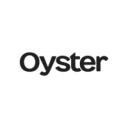Deel vs Gusto: Choosing the best payroll and HR solution
- 01Deel vs Gusto: overview
- 02What's the difference between Deel and Gusto?
- 03Deel pros and cons
- 04Gusto pros and cons
- 05Deel compared to Gusto
- 06Gusto compared to Deel
- 07Features comparison
- 08Deel vs Gusto: Which is the best for your business?
- 09Promotions on Payroll Management software
- 10Alternatives to Deel & Gusto
Access up to $500 savings on Deel & $483 on Gusto
Access up to $500 savings on Deel & $483 on Gusto
Enhanced efficiency, accurate payroll, and comprehensive HR management are crucial for the success of any business. However, without the proper tools, managing international workforces and local teams can become a cumbersome and error-prone process. This can lead to payroll inaccuracies, compliance issues, and HR inefficiencies, costing your business valuable time and money.
Fortunately, the market offers robust solutions for payroll and HR management. This article compares two popular services, Deel and Gusto, focusing on their primary use cases, key features, and pricing structures. By examining the main differences between Deel and Gusto, you can determine which service best aligns with your business needs, whether you're looking to expand globally or streamline domestic operations.
Deel vs Gusto: overview
Deel and Gusto are prominent figures in the field of payroll and HR management software. Each platform brings a rich assortment of features tailored to specific business needs, creating a tough decision for businesses trying to choose between them in the Deel vs Gusto comparison.
Deel is renowned for its global payroll capabilities and compliance management, making it ideal for companies with an international workforce. On the other hand, Gusto is celebrated for its user-friendly interface and comprehensive benefits management, which suits predominantly U.S.-based SMEs.
To aid you in making a well-informed choice for your company, we've crafted a detailed comparison table that highlights the essential attributes of each service. We evaluate each feature using a star rating system, complemented by thorough commentary to give you a clear perspective on what Deel and Gusto offer. Browse through the table below to better understand their capabilities and decide which platform aligns best with your payroll and HR management needs.
What's the difference between Deel and Gusto?
Deel and Gusto are leading platforms in the realm of payroll and HR management, each catering to distinct business needs, which is crucial in understanding their differences.
A primary difference between Deel and Gusto lies in their target markets. Deel is designed primarily for businesses that operate on a global scale, offering services that enable companies to hire, onboard, and manage payroll for employees in over 150 countries. This includes handling local tax laws and compliance issues, which are often significant hurdles for multinational companies. Deel provides a comprehensive solution for managing international workforces, including contractor payments and full-time employee payroll, with features tailored to various country regulations.
On the other hand, Gusto primarily targets small to medium-sized businesses within the United States. It offers a more traditional suite of HR services, including payroll processing, benefits management (like health insurance and retirement plans), and compliance with U.S. tax laws. Gusto is particularly known for its user-friendly interface and excellent customer service, which makes it an ideal choice for smaller businesses that may not have a dedicated HR department.
In terms of pricing, both platforms employ a subscription-based model, but their structures differ to accommodate their specific services. Deel's pricing may include more customization depending on the scale of international operations and the number of employees, reflecting its global orientation. Gusto, meanwhile, offers tiered pricing plans that scale with the number of employees and the depth of HR services required, which can be a more cost-effective solution for U.S.-based SMEs.
Both Deel and Gusto streamline HR processes, but their use cases, pricing strategies, and primary markets highlight how they cater to fundamentally different types of businesses. Deel's international payroll and compliance capabilities make it indispensable for global operations, whereas Gusto's comprehensive, localized HR solutions are tailored for SMEs focusing on domestic markets.
Deel pros and cons
What are the advantages of Deel?
- Global compliance: Deel helps businesses navigate the complexities of international hiring by ensuring compliance with local labor laws and regulations. This saves companies time and resources that would otherwise be spent on researching and managing compliance issues.
- Streamlined payments: Deel simplifies the process of paying international contractors by handling currency conversions and facilitating payments through various methods such as bank transfers and digital wallets. This can help businesses avoid delays and errors in payments.
- Contract management: The platform provides tools for creating, signing, and managing contracts with remote workers. This helps businesses maintain clear agreements with their contractors, reducing misunderstandings and disputes over terms of employment.
- Time tracking and reporting: Deel offers features for tracking the time worked by remote employees and generating reports for payroll and project management purposes. This helps businesses monitor productivity and allocate resources more efficiently.
- Customer support: Deel offers customer support to assist businesses with any issues or questions they may have regarding the platform or their international hiring processes. This can be valuable for companies that are new to hiring remote workers or operating in multiple countries.
What are the disadvantages of Deel?
- Cost: Using Deel's services typically incurs fees, which can add up depending on the size of the workforce and the volume of payments processed. For small businesses or those with tight budgets, these costs may be prohibitive.
- Limited integration: Deel may not integrate seamlessly with all existing payroll or accounting systems, which could require additional manual work to reconcile data between platforms. This lack of integration can be a barrier for businesses that rely on specific software for their operations.
- Learning curve: Implementing a new platform like Deel may require time and effort to onboard employees and learn how to use its features effectively. This initial learning curve could disrupt workflow and productivity until users become familiar with the platform.
- Dependency on platform: Relying on a third-party platform like Deel for payroll and compliance services means businesses are dependent on its reliability and security. Any downtime or security breaches on the platform's end could disrupt operations and compromise sensitive data.
- Regulatory changes: While Deel aims to help businesses stay compliant with local regulations, changes in labor laws or tax requirements in different countries could still pose challenges. Businesses need to stay informed about regulatory changes and ensure that their processes remain compliant accordingly.
Compare Deel to other tools
Gusto pros and cons
What are the advantages of Gusto?
- User-friendly interface: Gusto offers an intuitive and easy-to-use interface, making it simple for businesses to navigate through payroll, benefits administration, and HR tasks. This user-friendly experience can save time and reduce the learning curve for users.
- Automated payroll: Gusto automates the payroll process, including calculating taxes, processing direct deposits, and generating payroll reports. This automation helps businesses save time and reduce errors associated with manual payroll processing.
- Comprehensive benefits administration: Gusto provides tools for managing employee benefits, including health insurance, retirement plans, and commuter benefits. The platform helps businesses streamline benefits enrollment, track employee contributions, and ensure compliance with regulations.
- Employee self-service: Gusto offers self-service features that allow employees to access their pay stubs, update personal information, and enroll in benefits online. This empowers employees to manage their own information, reducing administrative burden on HR staff.
- Integration with third-party apps: Gusto integrates with a variety of third-party apps and platforms, including accounting software, time tracking tools, and employee management systems. This seamless integration allows businesses to consolidate their HR and payroll data across different systems.
What are the disadvantages of Gusto?
- Limited advanced HR features: While Gusto offers basic HR functionality, it may lack more advanced features required by larger or more complex organizations. Businesses with complex HR needs may find Gusto's feature set to be insufficient.
- Cost: Using Gusto's services typically incurs fees, which can vary depending on the number of employees and the level of services required. For small businesses or those with tight budgets, these costs may be a significant consideration.
- Customer support: Some users have reported issues with Gusto's customer support, including long wait times for assistance and difficulty resolving complex issues. Improvements in customer support responsiveness could enhance the overall user experience.
- Limited international support: Gusto primarily serves businesses operating in the United States and may not be suitable for companies with international operations or employees located outside the U.S. Businesses with global operations may need to look for alternative solutions that offer international support.
- Potential for compliance errors: While Gusto helps businesses stay compliant with payroll and benefits regulations, there is still potential for errors or oversights, especially in complex regulatory environments. Businesses should ensure they have processes in place to verify compliance and address any issues that arise.
Compare Gusto to other tools
Deel compared to Gusto
Deel and Gusto are both platforms offering payroll and HR solutions, yet they cater to slightly different needs. Deel specializes in global payroll and compliance, assisting businesses in managing remote teams and international contractors seamlessly. It ensures compliance with local labor laws and facilitates streamlined payments across borders.
Gusto, on the other hand, targets small to medium-sized businesses with its user-friendly interface and comprehensive HR features. While Gusto provides benefits administration and automated payroll, it may lack the international focus and advanced compliance features offered by Deel.
Is Deel better than Gusto?
When comparing Deel and Gusto, it's essential to consider the specific needs of a business. Deel excels in handling international payroll complexities, making it ideal for companies with a global workforce. Its robust compliance tools are tailored for navigating varying international regulations, which is invaluable for organizations employing overseas staff.
Conversely, Gusto is preferable for primarily U.S.-based businesses seeking a straightforward solution for payroll and HR tasks. It simplifies these processes with an intuitive setup that supports smaller companies without the need for extensive HR departments.
What is Deel best used for?
Deel excels in facilitating global payroll and compliance for businesses with remote teams and international contractors. It's best used for streamlining the complexities of international hiring, ensuring adherence to local labor laws, and managing payments across borders. By providing tools for contract management, currency conversion, and compliance verification, Deel simplifies the process of hiring and paying remote workers.
Whether a company is expanding its operations globally or embracing remote work, Deel offers the necessary infrastructure to navigate the challenges of international employment effectively.
Can Deel replace Gusto?
While Deel offers robust solutions for global payroll and compliance, it's not a direct replacement for Gusto. Deel specializes in managing international contractors and remote teams, ensuring compliance with local labor laws and facilitating cross-border payments. However, Gusto offers a broader range of HR services tailored to small and medium-sized businesses, including benefits administration and automated payroll processing.
While both platforms address HR needs, Deel's focus on international operations makes it ideal for companies with a significant global presence, while Gusto caters more comprehensively to domestic HR and payroll requirements.
Is Deel cheaper than Gusto?
Determining whether Deel is cheaper than Gusto depends on the specific needs and usage patterns of the business. While both platforms incur fees for their services, the costs can vary based on factors such as the number of employees, the level of service required, and the complexity of payroll and HR needs.
Deel's pricing may be more advantageous for businesses with a significant international presence, as it focuses on global payroll and compliance. However, Gusto's pricing structure may offer better value for small to medium-sized businesses with primarily domestic operations.
Is there a better Payroll Management software than Deel?
Determining if there's a "better" software than Deel depends on your unique business requirements. Deel specializes in global payroll and compliance, offering solutions for managing remote teams and international contractors.
However, there are alternative platforms to Deel in the market that might better suit your needs. For instance, if you prioritize comprehensive HR services beyond global payroll, Gusto could be a better fit. Conversely, if you seek a broader suite of HR and talent management tools, platforms like Remote, Rippling, BambooHR or Zenefits might be worth exploring.
$500 in credits on Deel
Get $500 in credits on Deel and up to $500 savings with Secret.
Gusto compared to Deel
Gusto and Deel offer distinct solutions tailored to different aspects of HR and payroll management. Gusto provides comprehensive HR services, including benefits administration and automated payroll processing, catering primarily to small and medium-sized businesses.
On the other hand, Deel specializes in global payroll and compliance, focusing on managing remote teams and international contractors seamlessly. While Gusto prioritizes domestic HR needs with user-friendly interfaces, Deel excels in navigating the complexities of international employment, ensuring compliance with local labor laws and facilitating cross-border payments.
Is Gusto better than Deel?
Choosing between Gusto and Deel hinges on the nature and scale of a business’s operations. Gusto emerges as a more suitable option for companies that operate mainly within the U.S. and value simplicity and comprehensive support in HR functionalities. Its strength lies in its ability to deliver an all-encompassing HR platform that simplifies processes such as benefits management and payroll for small to medium-sized enterprises.
This focus on user experience and domestic needs makes Gusto particularly advantageous for businesses without international employees, offering a streamlined, efficient solution that fits neatly into the everyday workings of U.S.-based firms.
What is Gusto best used for?
Gusto is best used for small to medium-sized businesses seeking comprehensive HR and payroll solutions. With its user-friendly interface and automation features, Gusto streamlines payroll processing, benefits administration, and employee management tasks. It caters to companies looking to simplify HR processes, offering tools for onboarding, time tracking, and compliance management.
Gusto's focus on providing customizable benefits packages and easy employee self-service options makes it ideal for businesses aiming to enhance employee satisfaction and retention. Whether managing payroll for a growing team or administering employee benefits, Gusto offers a robust platform tailored to the needs of modern businesses.
Can Gusto replace Deel?
While Gusto offers comprehensive HR and payroll solutions, it may not directly replace Deel's specialized focus on global payroll and compliance. Gusto excels in managing domestic HR needs for small to medium-sized businesses, providing features such as benefits administration and automated payroll processing.
However, Deel's strength lies in navigating the complexities of international employment, ensuring compliance with local labor laws, and facilitating cross-border payments. Depending on the business's specific requirements, Gusto may complement Deel by handling domestic HR tasks, but Deel remains the preferred choice for businesses with a significant global presence or international workforce.
Is Gusto cheaper than Deel?
Determining whether Gusto is cheaper than Deel depends on the specific needs and scale of your business. Gusto’s competitive pricing typically caters to small to medium-sized businesses, offering comprehensive HR and payroll services.
On the other hand, Deel specializes in global payroll and compliance, serving businesses with international operations or remote teams. While both platforms incur fees for their services, the cost comparison varies based on factors such as the number of employees, the level of service required, and the complexity of payroll and HR needs.
Is there a better Payroll Management software than Gusto?
Determining if there's a "better" software than Gusto depends on your unique business requirements. Gusto is well-known for its comprehensive HR and payroll solutions, catering primarily to small and medium-sized businesses.
However, there are alternative platforms to Gusto that might better suit your needs. For instance, if you require advanced HR features beyond payroll, platforms like Patriot Payroll, ADP Workforce Now, QuickBooks Payroll, and Square Payroll could be worth considering. Conversely, if you prioritize global payroll and compliance for remote teams, Deel might be a better fit.
3 months free / Unlimited users on Gusto
Get 3 months free / Unlimited users on Gusto and up to $483 savings with Secret.
Features comparison
Both Deel and Gusto Excel in Payroll Management
Both Deel and Gusto offer robust solutions tailored to the needs of businesses. Deel streamlines the setup of payrolls, automating tax deductions and pension collections to ensure compliance with local regulations. For example, Deel's platform facilitates the seamless processing of payments for international contractors, handling currency conversions and tax obligations efficiently.
Similarly, Gusto generates legally compliant payslips with all taxes automatically included, simplifying payroll processing for domestic teams. Both tools prioritize simplicity and automation, ensuring legal compliance throughout the payroll process, making them valuable assets for businesses of all sizes.
Gusto Enhances Team Performance with Comprehensive Learning Tools
Gusto distinguishes itself by offering team members access to performance reviews and learning tools aimed at skill enhancement, setting it apart from Deel. For instance, Gusto's performance review feature allows managers to provide feedback and set goals, fostering continuous improvement among team members. Additionally, Gusto's learning resources, such as training modules and educational materials, empower employees to develop new skills and knowledge.
In contrast, Deel lacks these specialized features, placing Gusto in a stronger position for promoting team performance and upskilling initiatives. Therefore, for businesses prioritizing employee development and growth, Gusto proves to be the superior choice over Deel.
Gusto Outshines Deel in Integration Versatility
When it comes to integration capabilities, both Deel and Gusto provide robust integrations, however, Gusto has a slight edge in this department. Gusto seamlessly integrates with various accounting software like QuickBooks and Xero, enhancing financial management efficiency. Additionally, its compatibility with popular HR tools such as BambooHR and Zapier facilitates streamlined workflows.
On the other hand, while Deel offers integrations with essential platforms like Slack and Google Workspace, its focus on global payroll may limit the depth of integration options compared to Gusto. Therefore, for businesses seeking extensive integration possibilities to optimize their HR and payroll processes, Gusto proves to be the superior choice.
Gusto's User-Friendliness Surpasses Deel's Complexity
When assessing user-friendliness, Gusto emerges as the frontrunner over Deel. Gusto's intuitive interface simplifies HR and payroll management for small to medium-sized businesses. For instance, Gusto's straightforward onboarding process guides users through setting up payroll and benefits with ease, while its clear navigation ensures efficient access to essential features.
Conversely, Deel, though proficient in global payroll and compliance, may present a steeper learning curve due to its focus on complex international operations. Therefore, for businesses prioritizing simplicity and ease of use, Gusto stands out as the preferred choice over Deel.
Deel Surpasses Gusto in International Hiring Solutions
While both Deel and Gusto offer features for hiring new employees, Deel holds a distinct advantage in facilitating international hiring processes. Deel streamlines the onboarding of international employees by handling compliance with local labor laws and facilitating cross-border payments. For example, Deel's platform simplifies the process of hiring contractors in various countries by managing tax implications and legal requirements, ensuring compliance and minimizing risks for businesses.
In contrast, Gusto lacks specialized features for international hiring, making it less suitable for companies with a global workforce. Hence, Deel emerges as the superior choice for businesses seeking comprehensive solutions for international employment.
Gusto's Superiority in Employee Benefits Provision
Gusto takes the lead in offering tangible benefits to employees by enabling employers to provide essential health and financial benefits, thereby enhancing loyalty and satisfaction among team members. For example, Gusto facilitates the administration of health insurance, retirement plans, and commuter benefits, ensuring employees' well-being and financial security.
In contrast, Deel lacks a specific feature for managing and offering employee benefits, placing Gusto as the stronger contender in this area. Therefore, for businesses prioritizing employee well-being and satisfaction through comprehensive benefits packages, Gusto emerges as the preferred choice over Deel.
Deel Offers More Comprehensive Contract Customization than Gusto
Deel distinguishes itself with its customizable contracts feature, enabling businesses to tailor contracts for each employee or contractor to ensure clarity and understanding. For instance, Deel's platform allows businesses to specify terms such as payment schedules, project deliverables, and intellectual property rights, ensuring alignment between parties.
In contrast, while Gusto facilitates onboarding and e-signature processes, it lacks the emphasis on detailed contract customization found in Deel. Therefore, for businesses seeking comprehensive control over contractual agreements and tailored terms, Deel emerges as the superior choice over Gusto.
Subscribe to our newsletters.
No FOMO here. Stay up-to-date on all the latest deals and news with our monthly newsletter straight to your inbox like 126,000+ entrepreneurs (+ Get 10% off on on our Premium Membership!)
Deel vs Gusto: Which is the best for your business?
Deel is the best tool for you if:
- Your business operates on a global scale and you need to manage payroll and compliance across multiple countries efficiently.
- You require robust tools to handle the complexities of international labor laws and tax regulations.
- You are looking to streamline the process of hiring and paying international contractors without the hassle of setting up foreign entities.
- Your workforce is remote and distributed across various countries, necessitating a centralized system for managing payroll and HR tasks.
- You value a platform that integrates with existing business tools to offer a cohesive workflow for global operations.
Gusto is the best tool for you if:
- Your business is primarily based in the U.S. and you're seeking an easy-to-use platform for payroll, benefits, and HR management.
- You appreciate having access to a full suite of HR tools, including health benefits and workers' compensation, within one platform.
- You prefer a system that automates tax filings and payroll operations, minimizing manual work and potential errors.
- You are a small to medium-sized business that values intuitive software with strong customer support.
- You need a cost-effective HR solution that also offers tools for employee onboarding, time tracking, and performance management.
Alternatives to Deel & Gusto
Promotions on Payroll Management software
Start saving on the best SaaS with Secret.
Secret has already helped tens of thousands of startups save millions on the best SaaS like Deel, Gusto & many more. Join Secret now to buy software the smart way.
















